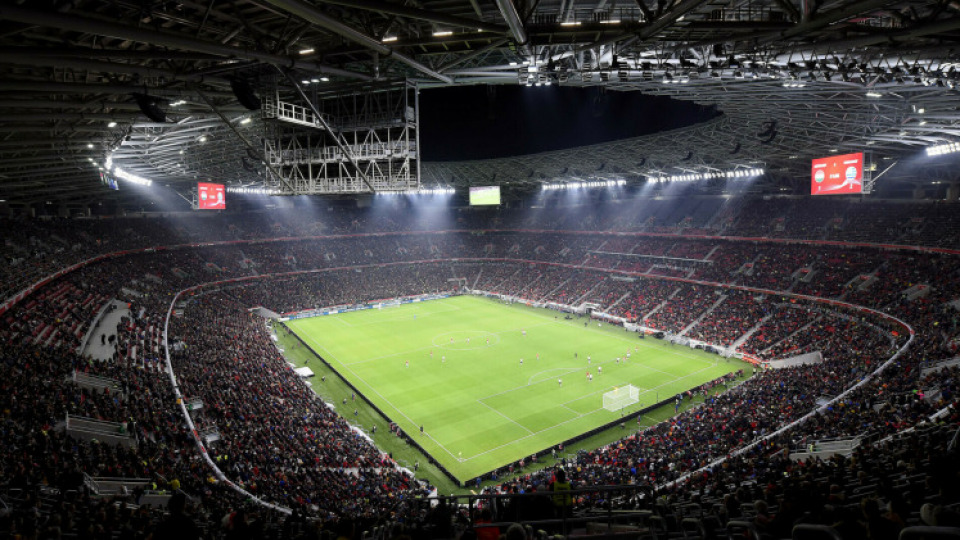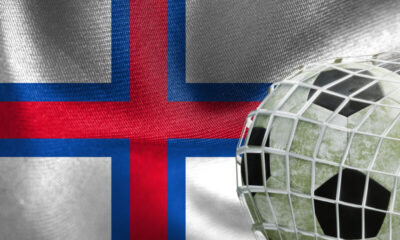Football
Health risks, unapproved vaccines, racism and homophobia. What is the flip side of Hungary’s packed stadiums?
Most football fans’ hearts sank when they saw a packed Puskás Arena on 15 June. The atmosphere of football was finally back, but at what cost and at what time.

Most football fans’ hearts sank when they saw a packed Puskás Arena on 15 June. The atmosphere of football was finally back, but at what cost and at what time. Homophobic banners or racist chants from the stands added to the criticism towards the Eastern European nation.
Hungarian football is on the rise, thanks in large part to the massive investments of controversial Prime Minister Viktor Orbán. He is so supportive of football in his country that he has decided to arrange for packed stands at the home games of the ongoing European championship.
15.however, on the 6th, moments after passing a ban on mentions of the LGBTQ+ community among youth, what football fans were expecting to return to the stadium apparently did not happen. Around 55,000 fans, without any protective gear, squeezed into the also newly built Puskás Arena.
Without covering their mouths or noses, they shouted chants and supported their team at the top of their lungs, possibly spreading the coronavirus. Although the pandemic situation in Hungary has stabilised, with daily increases of between 50 and 200 in recent days, there is still a risk.
How did Orban ensure a full stadium? A successful vaccination
While in Germany no more than 15,000 spectators can get to a match due to regulations, in Hungary the maximum number is up to four times that. And the maximum possible, since 60 thousand is the maximum capacity of the hosting stadium.
Orbán took care of this “miracle” nowadays. He has given in to his favourite sport – and to the influx of popularity – and negotiated unlimited capacity with UEFA.
However, either a negative test or proof of vaccination must be a condition of attendance. And so the vaccination frenzy began.
There was little regard for the vaccine, and so the Hungarian Prime Minister, seeing the full stands, “ordered” the citizens to be vaccinated voluntarily with, for example, Sputnik or the Chinese vaccine Sinopharm. Neither of these vaccines is yet approved by the European Union.
Slovakia has experience with the former. Sputnik was sent to them with a different composition and vaccine itself. The latter has been approved by the WHC, but only for emergency use.
Racism and homophobia in stadiums
The packed stands reminded us once again that what was happening during the stadium closures, especially on social media, is still alive in the real world.
Hungarian fans first introduced themselves to the championship with a banner in the stands that targeted the LGBTQ+ community and discriminated against its members. They then put on another performance in the match against France.
Instead of banners, they chose to express themselves vocally. As a result, you could hear monkey chants during the match as racist innuendos directed towards dark-skinned footballers. UEFA began to look into the cases and investigate on Monday.
In both championship matches, a Hungarian neo-Nazi group called the Carpathian Brigade also appeared behind the goals in the stands.
Health risks
We probably all want fans to return to the stadiums. On the other hand, no one wants to fall into a fourth wave that would delay the return to normality even more than the slowly loosening measures.
Thus, even packed stadiums pose a big risk, even if visitors are tested or inoculated. In addition, the failure to wear masks or other mouth or nose coverings to prevent spread adds fuel to the fire.
While UEFA encourages wearing them on its website, you’d be looking for a long time in the Hungarian public and might not find anyone with protective gear.
Moreover, a negative test can be a maximum of 72 hours old, which is not that short a time, especially considering the transport to the stadium.
Moreover, we don’t want a repeat of the so-called match zero between Atalanta Bergamo and Valencia. That was at the beginning of the pandemic, when the first infected person appeared in Italy. Around 40,000 fans gathered in the stands.
The match then earned the nickname ‘match zero’ (patient zero), as many experts agree that it was at a Champions League match that the coronavirus spread and was subsequently spread to other countries by travelling fans.
The final group match between Portugal and France will still be played at the stadium in the centre of Budapest, as well as one of the eight-final matches, which may also, under certain circumstances, involve the third team from Group D containing the Czech Republic.
Sources used: Seznam Zprávy, CTK, SkySports, UEFA












